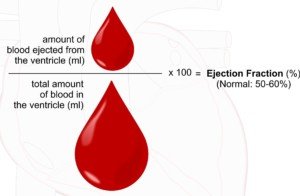
Congestive heart failure isn’t just an “old person” disease; it strikes young adults—and for specific reasons.
The reasons differ from those for elderly people.
What Is Congestive Heart Failure?
Failure of the heart to adequately pump blood throughout the body. This failure can be systolic or diastolic.
• Systolic: The heart doesn’t pump or “squeeze” hard enough with each beat, and hence, an insufficient amount of blood gets pumped with each beat.
However, there’s a normal supply of blood in the heart ready to be pumped out.
• Diastolic: The pumping action is normal, but there’s an inadequate supply of blood in the heart to be pumped out. Thus, an insufficient amount of blood gets pumped with each beat.

Shutterstock/ellepigrafica
In elderly people, the two biggest causes of CHF are coronary artery disease and high blood pressure.
Should most younger adults worry about getting congestive heart failure?
If you take good care of your body and have no birth defect with your heart, the answer is NO.
Common Causes and Contributors of Congestive Heart Failure in Young Adults
“This is most commonly caused by cardiomyopathy, which is a condition characterized by a weak heart muscle,” says Morton Tavel, MD, Clinical Professor Emeritus of Medicine, Indiana University School of Medicine, and author of “Health Tips, Myths and Tricks: A Physician’s Advice.”
“The weakness can be a result of any of a number of causes, ranging from viral infections, toxic drug exposures or genetic predispositions,” adds Dr. Tavel.
• This familial (genetic) dilated cardiomyopathy usually becomes relevant in middle age, but it can strike young adults, even children. This is the condition that is often behind the sudden deaths of young athletes during sports play.
• Myocarditis (inflammation of cardiac tissue)
• Lesions on the cardiac tissue caused by drugs or alcohol
• High blood pressure
• Chronic kidney disease
• Low “good” cholesterol (HDL) may be a contributor.
• Obesity

Shutterstock/Nomad_Soul
So in general, if you as a younger adult should worry about something cutting your lifespan short, it would be more logical to worry about car accidents.
Congestive heart failure in younger adults (20s to 40s) is often not considered by doctors as a possible cause of their new patients’ symptoms.
Symptoms typically start out as fatigue, tiredness (not sleepiness), shortness of breath (getting “out of breath” despite mild exertion or even casual exertion), rapid resting pulse, and slight and unexplained weight gain (from fluid buildup).
Progression of fatigue can occur over several weeks, joined by nausea, vomiting, swollen ankles and a distended stomach.
Fatigue, weakness and feeling drained of energy have several benign causes, and often, stress or a change in lifestyle (e.g., new baby) is blamed.
Incidence in U.S. of Congestive Heart Failure in Younger Adults
• The five-year risk of CHF among 40-year-old whites is estimated to be 0.1% to 0.2%.
• In one study, the incident rate in blacks was 20 times that of whites (1% of black men and women who were part of the study; average age 39).
• There is no explanation for the racial disparity, but chronic kidney disease is more common in blacks.
Take-home Messages
• Average people under 50 who lead a healthy lifestyle and have no evidence of congenital heart problems should not worry about “getting” congestive heart failure—but they should take measures to help prevent it.
• No matter how young an adult you are, KNOW YOUR BLOOD PRESSURE. If it’s high, get it under control.
• Know your cholesterol profile and get it under control if undesirable.
• Clean up your diet. The kidneys don’t like being burdened with the toxins that are found in highly processed foods, namely added sugars.
• Maintain a medically acceptable body weight.
• Exercise! Exercise strengthens the heart.
In case you’ve developed a heart condition, it’s very important to wear a medical ID bracelet so that in emergency situations people nearby will know how to help you.
Lauren’s Hope is producing interchangeable medical ID bracelets that are attractive, durable, stylish and can be worn by young adults without drawing any attention to their illness.



























